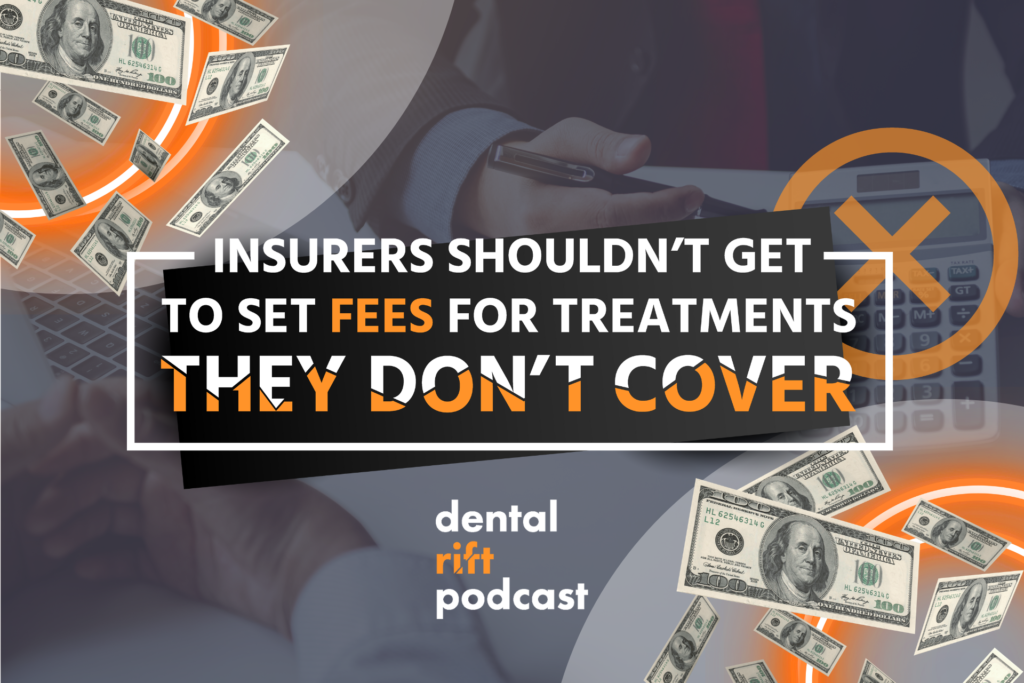This spring, a bipartisan group of lawmakers introduced bills in both the House and Senate that would ban what’s called noncovered services provisions in agreements between dentists and insurance carriers.
Typically, when a dentist contracts with an insurer, the insurance company sets a fee schedule for any procedures covered under their plan. A dentist who charges $2,000 to do a crown fee-for-service might only be allowed to bill a Delta Dental patient $1,400 for that same crown.
Dentists agree to this because they’ll typically end up doing more crowns as a result of working with an insurance plan, so they come out ahead financially even though each procedure generates less.
However, a noncovered services provision allows an insurance company to also set fees for procedures that they… don’t cover. In other words, Acme Dental Insurance might tell a practice that normally charges $4,000 for a single tooth implant that any patients who have Acme will only pay $3,000 for that same implant — even though Acme itself won’t pay a dime towards those patients’ costs.
We think this is a raw deal for dentists. Small wonder that 45 states already outlaw noncovered services provisions, but in the five that don’t — plus the many plans regulated at the federal level — dentists who want to work with insurance providers are forced to accept that provider’s pricing decisions for non-insured treatments.
We (along with the ADA, we might add) believe that it’s time for this to change and we’re hoping the bills become law.
Get Fresh Insights Into Dental
Sign up for the Dental Marketing Digest — FREE and delivered fresh monthly.

